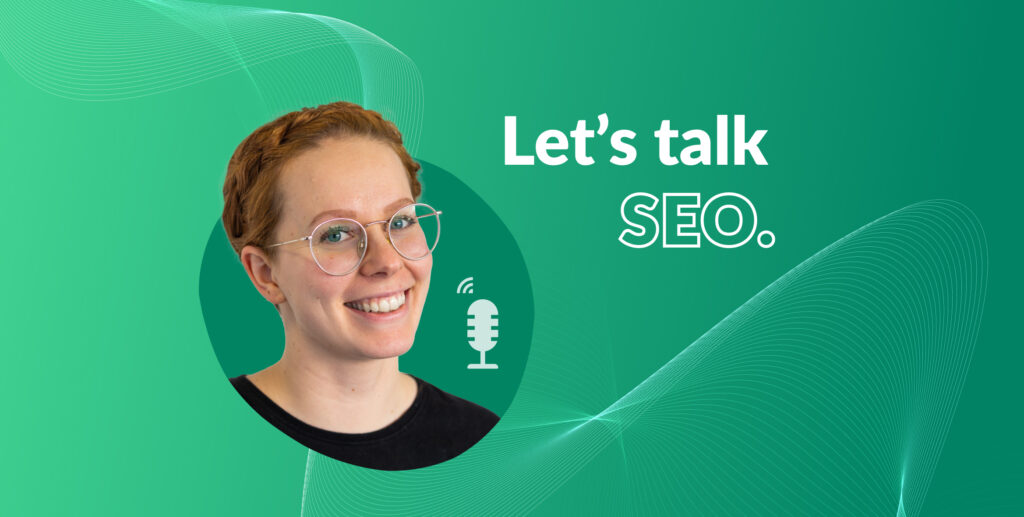The other day, we were lucky enough to sit down with Erica Ylimäki, Growth Marketer at TrustMary, the go-to SaaS platform for collecting and displaying reviews. We wanted to chat about her success at converting paid customers through low-volume keywords, as well as pick her brains on all things SEO.
You can listen to the full discussion on our podcast here, or read an edited and reduced version of the transcript below.
How did you get into marketing and working with TrustMary?
Erica Ylimäki: I initially studied to become a German and English teacher, and near the end of my studies, I was searching for a part-time job. I came across an advertisement for a German-speaking interviewer, applied, and got the job. It involved conducting three interviews in German in Germany, which were recorded and transformed into video testimonials. I enjoyed the work, and the company was pleased with my performance, leading them to offer me more jobs in Finland. Within three or four months, they created a specific role for me. My responsibilities included creating content in English and German, sourcing video testimonials, and managing freelance videographers across Europe.
When COVID-19 struck, we recognized that our business model, although successful in creating compelling video testimonials, was not scalable due to its reliance on manual labour. This realisation led us to digitise the entire process, resulting in the development of software that assists in collecting reviews and testimonials for integration into websites and social media platforms. We still offer video testimonials as a feature, especially for B2C interactions where it’s more feasible, but it’s no longer our business’s core.
As we transitioned from a project-based business to a SaaS model, I began to write content and, within a few months, took over managing the entire content production process. Although I was new to keyword research, I learned through hands-on experience and guided freelancers in content creation. Eventually, we hired an in-house team member to assist with content production. Over time, my role evolved, and last year, I transitioned into a growth marketing role, taking an active part in all aspects of marketing and customer communication
Tell us about your success story with low-volume bottom of funnel (BOFU) keywords
Erica Ylimäki: So when I first started doing keyword research, it became clear that our site’s authority wasn’t strong enough for the big themes. We structured our blog into pillars, starting with reviews and followed by everything related to reviews, and then social proof and related topics. It was quite apparent that it would be very challenging to rank for highly competitive keywords, especially since companies like HubSpot are our competitors in some areas.
It was tough, so I decided we should focus on creating ‘how-to’ content and identifying relevant keywords, which were prevalent across multiple categories. For example, we concentrated on how to add Google reviews to WordPress, or use Elementor for this purpose, and similar guides for Squarespace. We translated these pieces but didn’t fully localise them, which was not ideal, but it was a start. We aimed to get the content out there first and optimise later. So, we kept creating articles targeting bottom-funnel keywords, translated them, and also developed top-funnel content like explaining what social proof is and how to use it, which we then translated into our five main languages.
Right before I went on maternity leave for the first time, I was keenly tracking when we would secure our first paid customer through organic traffic. Interestingly, the day I left for maternity leave was when we secured our first paid organic customer. It was a pivotal moment; I was thrilled, yet also a bit saddened because I wanted to see how it would unfold. These articles turned out to be among our highest converting ones and even worked well in other languages, serving as a proof of concept that we had demand and traction in those markets too. We are now starting projects to localise our product for the German market, the Spanish-speaking market, and the French-speaking market. Auto-translating those articles was a very good idea. It wasn’t wise to translate every piece of content on our website, but it was a decision we made at the time.
Did you notice any differences between languages and their success?
Erica Ylimäki: Of course, there are differences in the platforms used in various countries. For instance, Wix is quite popular in Germany, while Elementor is preferred in another country. That’s the main difference I’ve observed. I speak German, so I can attest that the content is passable in that language, but I’m not sure about the quality of the content in Spanish or French, as I don’t have the language skills to judge it accurately. It’s been a learning experience as we work on localising these articles, including adding calls to action (CTAs) in those languages—which was an oversight initially but even without CTAs, the articles were somehow converting. Now, with CTAs added, they’re performing even better. We collaborate with partners for this. Working in a fast-paced company where you must quickly produce results with organic content means sometimes you have to compromise and not look too closely at every detail.
Do you have any advice on surviving the impact of generative AI on SEO?
Erica Ylimäki: I’ve noticed significant changes in the search engine results pages (SERPs), for example, with our articles on how to add Google reviews to a website. The SERP now often prompts whether you’d like an AI-generated response, which can overshadow the organic results. This change is concerning because tools like SEMrush can’t show the SERP in this new format. We have to use a VPN to see how we’re performing in the US and if our content is included in the AI responses.
We use AI to identify gaps in our content strategy by analysing what our competitors are missing, which helps speed up the process. However, the core content creation remains a manual effort. I hope that search engines will eventually be able to recognize content that only differs by a few adjectives, but we’re far from that reality. In the meantime, sticking to creating original content is probably the best way to stand out in this competitive landscape.
One challenge today is that everyone sounds the same because we all use similar tools and keyword research methods. Our success in some areas comes from targeting zero-volume keywords, predicting that they would eventually gain traction as we addressed specific problems. For example, the search volume for Google review widgets, one of our features, has increased from 590 to 760 over two years, indicating rising demand. These tools aren’t always accurate, so focusing on producing genuinely useful content is essential—it’s likely to start ranking eventually.
Are backlinks dead?
Erica Ylimäki: Well, I personally see a lot of value in having high-quality backlinks and creating content that actually is valuable for other people. We’ve had some great success with creating statistics posts which get a lot of organic backlinks, and I think that does wonders for our whole website profile. And since having that, I think it has been easier to rank, because we have outranked HubSpot and Trustpilot a few times.
And I think it’s thanks to doing original stuff, but also getting those backlinks because how else would Google or other search engines know that you are trusted by others? That’s what it’s all about. It’s about how trusted you are if no one is referring to your content.
Do you need SEO if your content is good enough?
Erica Ylimäki: Keywords aren’t everything because, well, keyword research tools are just tools. But no matter how exciting your topic is, if you’re failing to put proper titles or similar elements, it just won’t perform. No one will ever find it. It’s critical to ensure that the basics, like titles, are well-managed, otherwise, the content can’t reach its potential audience, no matter its quality.
Thank you to Erica for taking the time to talk to us about marketing, SEO, and the spaces in between.
Want to be our next podcast guest? Drop us a line at hello@isolinecomms.com
Like what you just read?
There’s more where that came from. Sign up to our newsletter to get the latest B2B tech news, content marketing insights, tips, tricks, memes, and more, delivered straight into your inbox every month.



